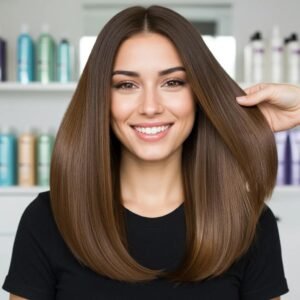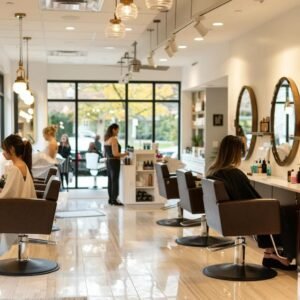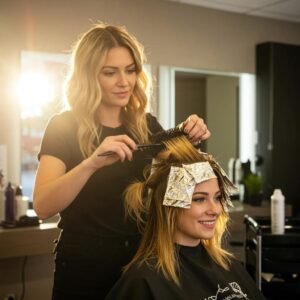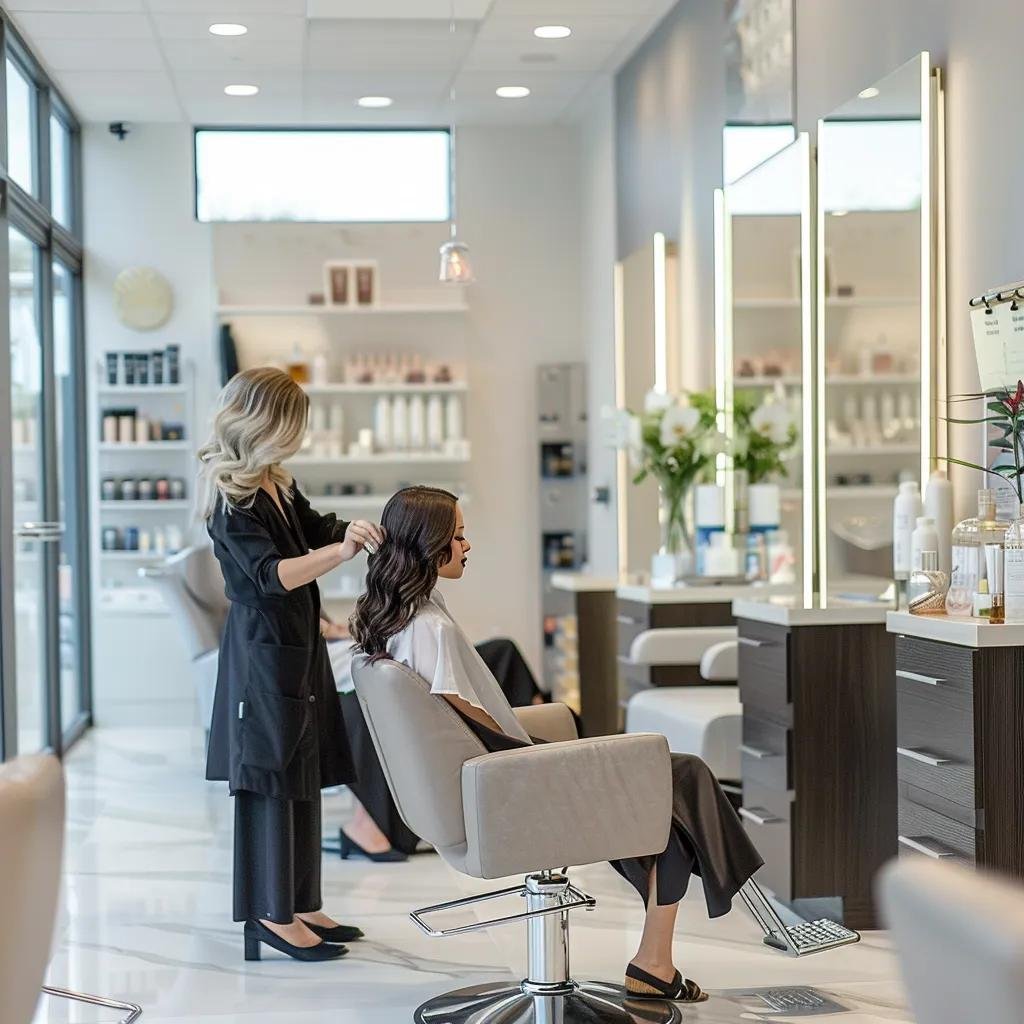
Article:
How Can I Find a Salon That Specializes in My Hair Type and Texture: Your Guide to Locating Salons That Cater Specifically to Your Unique Hair Needs
How can you guarantee every strand of your hair receives expert care tailored to its unique pattern and porosity? In this guide you’ll discover how to identify your hair type and texture, understand why specialized salons enhance health and appearance, explore targeted treatments like Olaplex, Deva Curl, Ginacurl, and keratin smoothing, learn to vet local providers in Bethesda, MD, maintain salon results at home, and see why Kylie Studio Salon stands out. By mapping out each step, you’ll leave equipped to book the ideal personalized appointment for your hair’s specific needs.
Finding the Right Salon for Your Unique Hair Type and Texture
Different hair types describe natural curl patterns and strand thickness, influencing how a salon approaches cutting, coloring, and conditioning. Recognizing your category helps you select professionals with the right tools, techniques, and products to promote strength and shine.
How Do I Identify My Hair Type and Texture?
Hair type refers to the natural pattern of your strands—straight, wavy, curly, or coily—while texture describes thickness, ranging from fine to coarse. To assess, wash and air-dry hair without products, then observe:
- Strand Pattern: A pencil test (wrap a single strand) reveals diameter—fine, medium, or coarse.
- Curl Formation: Air-dried patterns show straight lines, gentle bends, defined spirals, or tight coils.
- Porosity Check: A strand submerged in water sinks quickly if highly porous or floats if low porosity.
Closing this self-assessment positions you to compare salons that advertise expertise in your exact hair characteristics.
What Are the Characteristics of Straight, Wavy, Curly, and Coily Hair?
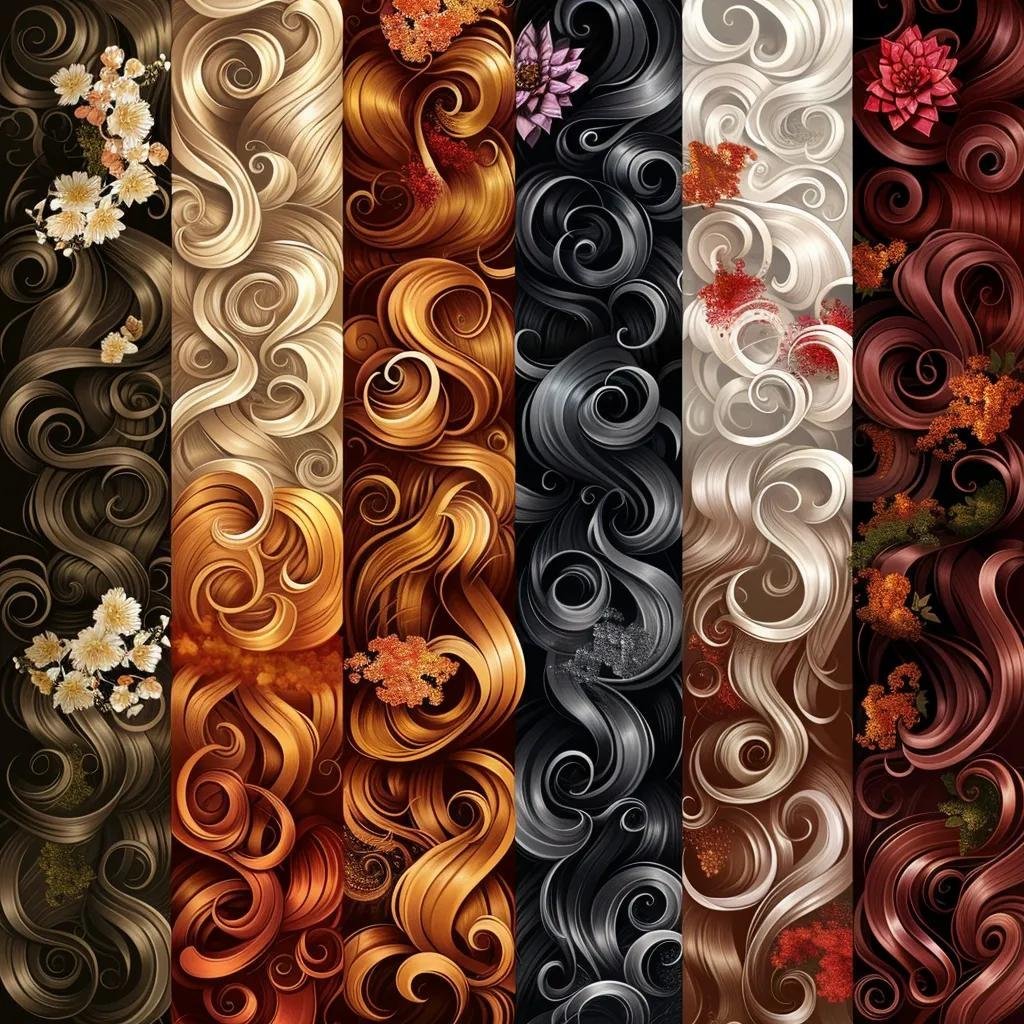
Below is an EAV table illustrating core hair type attributes and salon implications.
Each category demands a salon skilled in products and tools that enhance natural pattern without causing damage.
How Does Hair Porosity Affect Salon Service Selection?
Hair porosity describes the strand’s ability to absorb and retain moisture, determined by cuticle alignment. Low-porosity hair repels water, requiring heat-openers for deep treatments; high-porosity hair soaks up products but loses moisture quickly, benefiting from protein bonders that seal cuticles. Choosing a salon offering porosity testing and customized bonding services ensures treatments like Olaplex penetrate effectively or glaze formulas lock in hydration.
Hair Porosity and Moisture Retention
Hair porosity, determined by the cuticle’s alignment, affects how well hair absorbs and retains moisture. Low-porosity hair resists water, while high-porosity hair quickly absorbs and loses moisture, influencing the effectiveness of treatments like Olaplex.
This research supports the article’s explanation of how hair porosity impacts the selection of salon services and product effectiveness.
What Common Hair Concerns Should Influence My Salon Choice?
Whether you experience dryness, breakage, scalp sensitivity, or color fading, a specialized salon should tailor protocols accordingly. Consider these primary concerns:
- Damage Repair: Bond-building treatments to restore disulfide links
- Frizz Control: Humectant-rich smoothing systems or keratin glazes
- Color Longevity: pH-balanced shampoos and gentle processing
- Scalp Health: Exfoliating cleanses and soothing serums
By matching your top priorities to salon services, you secure a regimen that aligns with your hair’s condition and goals.
Why Is It Important to Choose a Salon Specializing in Your Specific Hair Needs?
Selecting a salon attuned to your hair type and texture provides personalized protocols that safeguard strand integrity and deliver optimal results.
How Do Specialized Salons Improve Hair Health and Appearance?
Salons specializing in unique hair structures employ targeted methods—such as Deva Curl dry-cutting for spirals or Ginacurl shaping for waves—that embrace natural patterns rather than forcing uniform styling. This reduces mechanical stress, enhances shine, and supports long-term strength by using products formulated for curl definition or keratin smoothing, leading to visibly healthier hair and sustained manageability.
What Are the Risks of Visiting a General Salon for Unique Hair Types?
Generalist salons often apply one-size-fits-all cutting and chemical protocols that can strip moisture, induce breakage, and alter curl geometry. Without expertise in bond-repair treatments or knowledge of porosity, services may leave fragile strands over-processed or under-treated, resulting in dryness, split ends, and uneven texture that require corrective visits.
How Do Experienced Stylists Tailor Services for Different Hair Textures?
Expert stylists begin with a consultation assessing strand diameter, elasticity, and curl pattern, then select techniques like slide cutting for straight hair volume, root-lift perming for fine textures, or layer-release trimming for curly hair. They match salon-grade products—bond builders, curl creams, smoothing agents—to your specific texture and coordinate maintenance plans that reinforce salon performance at home.
Which Specialized Hair Treatments Should I Look for in a Salon?
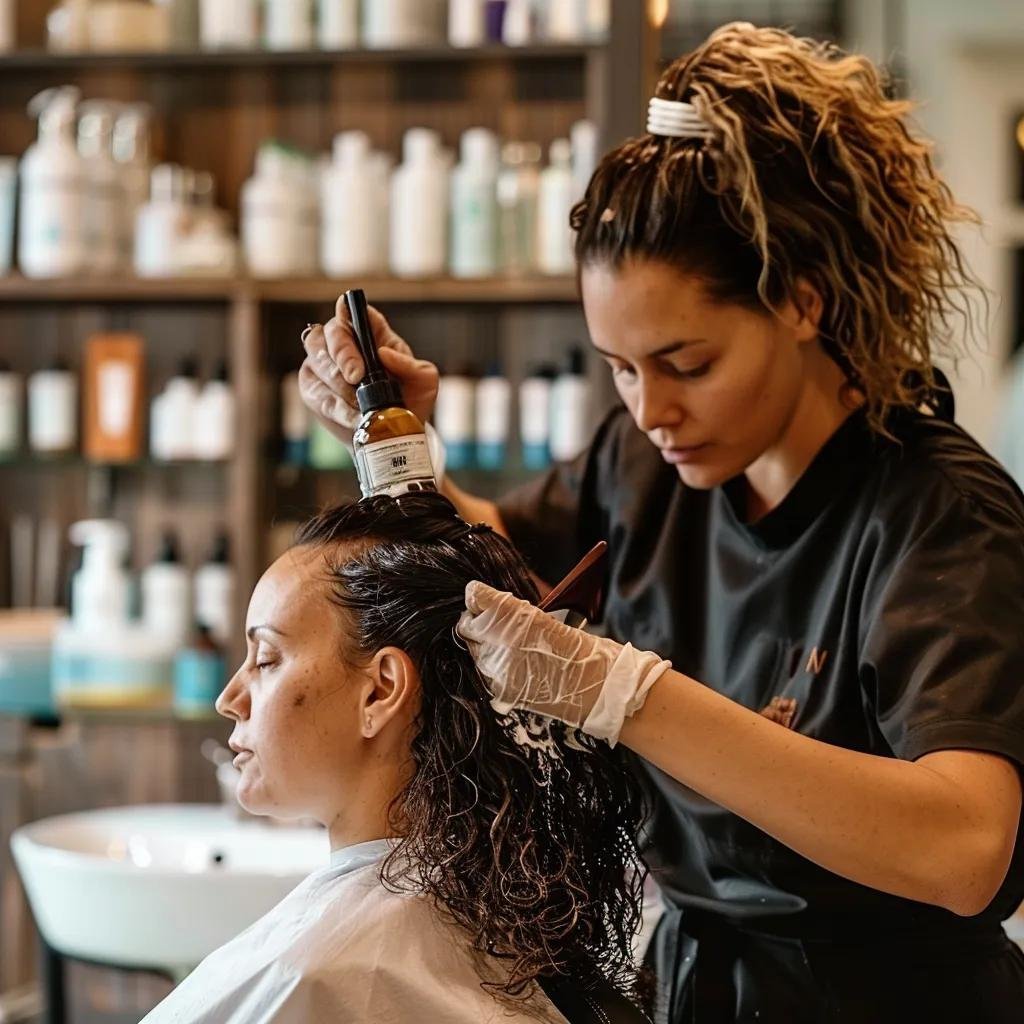
What Are the Benefits of Olaplex Treatments for Damaged Hair?
Olaplex repairs broken disulfide bonds within the hair cortex, instantly improving tensile strength and elasticity. Clients see reduced breakage, smoother surfaces, and longer-lasting color vibrancy. Incorporating Olaplex into chemical services or in-salon repair protocols promotes cumulative improvement with minimal downtime.
Benefits of Olaplex for Damaged Hair
Olaplex treatments repair broken disulfide bonds within the hair cortex, leading to improved strength and elasticity. This process reduces breakage and enhances color vibrancy, making it a valuable option for damaged hair.
This citation reinforces the article’s claims about the benefits of Olaplex treatments for hair repair and color maintenance.
How Does the Deva Curl Method Enhance Curly Hair?
The Deva Curl approach employs dry cutting on fully defined curls, preserving natural shape and preventing shrinkage. Paired with the brand’s hydration-intense products, this method reduces frizz, elevates definition, and leaves curls soft yet structured, supporting daily styling routines that maintain salon-fresh bounce.
What Is the Ginacurl Method and Who Is It Best For?
Ginacurl specializes in wavy to loose curly textures, using customized product layering, diffused drying, and strategic stretch cuts to elongate wave patterns without compromising volume. Ideal for 2A–3B hair, it enhances natural S-shapes while controlling frizz and promoting shine.
When Should I Consider a Keratin Smoothing Treatment?
Keratin smoothing infuses hydrolyzed protein and siloxanes to seal the cuticle, reducing frizz and hypersensitivity for up to four months. Those with coarse, high-porosity hair or humidity-prone frizz benefit most, gaining sleek manageability and reduced styling time.
How Do Deep Conditioning and Hair Glaze Treatments Support Hair Health?
Deep conditioning masks deliver concentrated moisturizers, proteins, and lipids that replenish lipids and repair micro-damage, while hair glazes deposit light-reflective polymers to enhance shine and color depth. Regular application fortifies the hair shaft and prolongs salon color services.
How Can I Find and Evaluate Salons That Cater to My Unique Hair Needs Locally?
Local search requires more than a Google query—it involves targeted research and in-person vetting to confirm expertise.
What Questions Should I Ask During a Salon Consultation?
Begin with direct inquiries:
- “Which techniques do you use for my hair type?”
- “Can you show before-and-after photos of similar textures?”
- “What maintenance steps do you recommend at home?”
These questions reveal a stylist’s familiarity with your specific needs and ensure a tailored service plan.
How Do I Verify a Stylist’s Certification and Specialization?
Look for credentials such as Olaplex or Deva Curl certification, advanced curly hair specialist workshops, and brand partnerships. Confirm via salon portfolios, certificates displayed onsite, or accredited platform listings to validate expertise in targeted treatments.
What Role Does Location Play in Choosing a Salon in Bethesda, MD?
Convenience affects consistency: a nearby salon like Kylie Studio Salon reduces barriers to follow-up visits and priority bookings. Local stylists also understand regional factors—hard water mineral buildup or seasonal humidity—that influence treatment selection.
How Can Online Reviews and Testimonials Guide My Salon Choice?
Authentic feedback on review platforms reflects real client experiences with curl definition, color retention, and damage repair. Prioritize salons with multiple detailed testimonials describing similar hair textures, service transparency, and maintenance success.
How Do I Maintain My Hair After Visiting a Specialized Salon?
Salon visits lay the foundation; at-home routines preserve and extend results between appointments.
What Are the Best At-Home Routines for Different Hair Types?
Effective home regimens match salon advice:
- Straight Hair: Volumizing shampoos and root-lift sprays
- Wavy Hair: Lightweight creams and diffuser drying
- Curly/Coily Hair: Sulfate-free cleansers, deep conditioners, leave-ins
How Should I Maintain Treatments Like Olaplex and Deva Curl at Home?
For Olaplex, use the prescribed take-home bond-building shampoo and mask weekly to sustain bond integrity. Deva Curl clients should follow the “Curly Girl” method—avoiding sulfates and silicones—and refresh curls with curl-activating sprays between washes.
What Products Are Recommended for Color-Treated and Damaged Hair?
Select shampoos and conditioners formulated for repair and color protection, featuring UV filters, antioxidants, and protein complexes. Examples include bond-building systems, keratin infusions, and gentle pH-balanced cleansers that lock in pigment and minimize further damage.
What Makes Kylie Studio Salon a Top Choice for Specialized Hair Care in Bethesda?
Kylie Studio Salon combines local convenience with over a decade of advanced training to deliver customized protocols for every hair type.
How Does Kylie Studio Salon Personalize Hair Care for Unique Hair Types?
Each service begins with an in-depth consultation and porosity test, guiding stylists to select the ideal bond-repair treatments, custom-blended curl creams, or smoothing systems. This precision ensures every cut, color, and conditioning experience aligns with clients’ natural texture and lifestyle.
Which Stylists at Kylie Studio Salon Specialize in Curly, Wavy, and Color-Treated Hair?
Our team includes certified curly hair specialists trained in Deva Curl and Ginacurl techniques, Olaplex bond-repair experts, and color professionals skilled in low-damage lightening. Their combined expertise supports clients from loose waves to tight coils and maintains vibrancy in color-treated strands.
What Certifications and Expertise Do Kylie Studio Salon Stylists Hold?
Stylists hold credentials such as Olaplex Professionals certification, Deva Curl Academy accreditation, and advanced keratin smoothing specialist training. Ongoing education in textured hair science and ingredient innovation reinforces our role as a trusted local authority.
How Can I Book a Personalized Hair Consultation at Kylie Studio Salon?
Contact Kylie Studio Salon by phone or through the online booking portal to reserve a private consultation. Clients in Bethesda, MD receive customized treatment plans and scheduling options designed for optimal hair health and style longevity.
What Are the Most Frequently Asked Questions About Finding a Salon for My Hair Type?
Top inquiries reveal the critical decision points in selecting a salon that truly understands your hair’s unique requirements.
How Do I Find a Good Hair Stylist for My Hair Type?
Look for stylists with visible specialization in your hair category, supported by certifications, portfolios, and client testimonials that demonstrate success with similar textures.
What Salon Services Are Best for Different Hair Types and Textures?
Specialty services align with hair patterns: straight hair benefits from precision layering, wavy hair thrives on texturizing glazes, curly hair demands dry-cutting and bond repair, and coily hair excels with hydrating protective treatments.
How Can I Tell If a Salon Is Right for My Curly or Wavy Hair?
Assess salon marketing for dedicated curl pages, expert stylist bios highlighting curl credentials, and gallery images showing defined, frizz-free results on real clients with similar wave or curl patterns.
What Treatments Are Recommended for Repairing Damaged Hair?
Bond-building protocols such as Olaplex and keratin smoothing deliver structural repair, while deep conditioning masks and protein-rich glosses restore strength and elasticity to compromised strands.
Salon expertise in these targeted solutions ensures your consultations lead to healthy, vibrant hair results without compromise.
Choosing a salon that specializes in your hair type and texture transforms every appointment into a personalized care experience rather than a routine cut and color. From understanding your unique pattern and porosity to evaluating certifications and local reviews in Bethesda, MD, each step moves you closer to optimum hair health and confidence. With Kylie Studio Salon’s tailored approach—backed by certified stylists, advanced treatments, and a commitment to ongoing education—you gain a partner invested in your hair’s long-term vitality. Start your journey today by scheduling a consultation and embracing a hair care routine designed exclusively for you.

